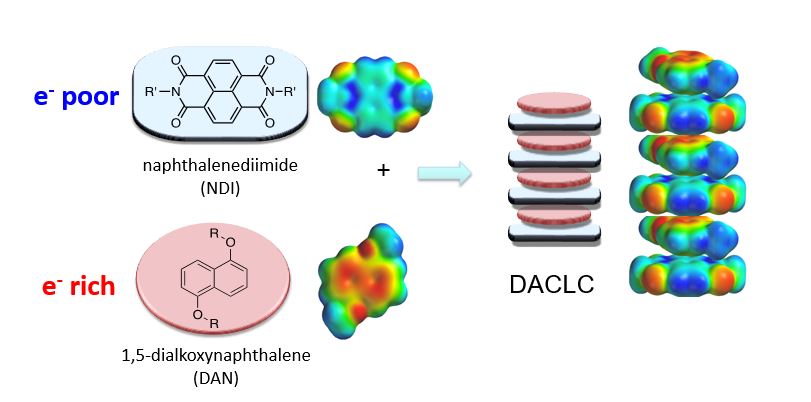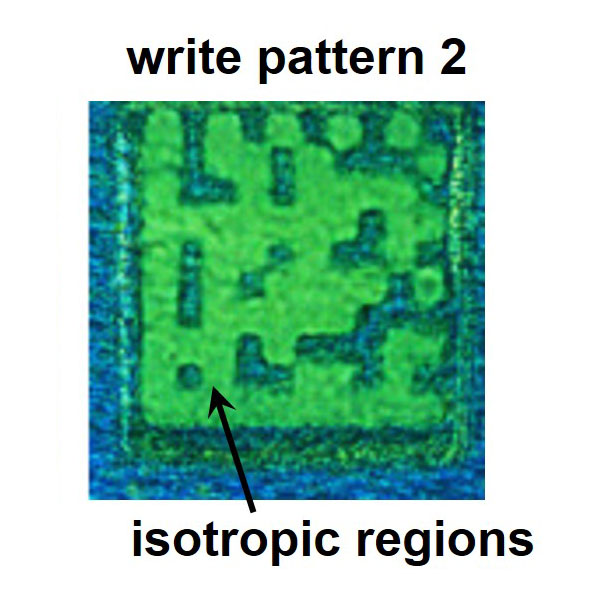Optically Reconfigurable Charge-Transfer Liquid Crystals
Multifunctional organic optically re-writeable (ORW) materials with enhanced tunability, micron scale accuracy, compatibility with diverse substrates, and self-healing properties

Since the rise of liquid crystal displays (LCDs), organic liquid crystals have emerged as a versatile class of molecular materials with applications ranging from display technology, smart authentication, and data storage and retrieval. Most modern-day applications employ calamitic-type LCs; however, a sub-class of columnar phase liquid crystals, also known as charge-transfer (CT) liquid crystals, exhibit intense and broadly tunable charge-transfer absorbance in the visible near-infrared reflectance.
Researchers at Sandia National Laboratories have leveraged the directional nature of charge transfer absorbance in CT liquid crystals to develop and demonstrate a new class of multifunctional, optically re-writeable (ORW) materials. By exploiting the molecular alignment-dependent CT absorption of assembled films, Sandia researchers demonstrated that laser-directed write/rewrite can be used to generate both ordered and disordered phase regions through the modification of heating and cooling dynamics of the constituent DACLCs film. This mechanism provides for simple tuning of chemical alignment properties and can be used to directly write optically active messages and complex patterns with micron-scale accuracy. The laser-directed assembly combined with the self-healing properties of DACLCs provide for limitless rewriting. The organic ORW system is compatible with hard and flexible substrates and responds to commercial DVD writers. The tunability and layering capabilities of CT absorption has promise for multi-color laser processing of films and additional functional properties such as photoconductivity, ferroelectricity, and ambipolar charge conduction.
- Enhanced responsiveness and chemical malleability
- Compatible with diverse substrates and existing technologies
- Micron scale accuracy
- Simple system for optically re-writeable (ORW) materials
- Coatings and films
- Data storage and encryption
- Energy transducers
- Nanoscale/microscale materials
- Optical display technologies
- Rewritable optics (e.g. waveguides, polarizers)
- Smart-tagging and authentication
- Nanoscale/microscale materials


SD 14546
Published11/7/2019
Last Updated11/7/2019
